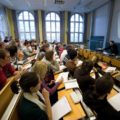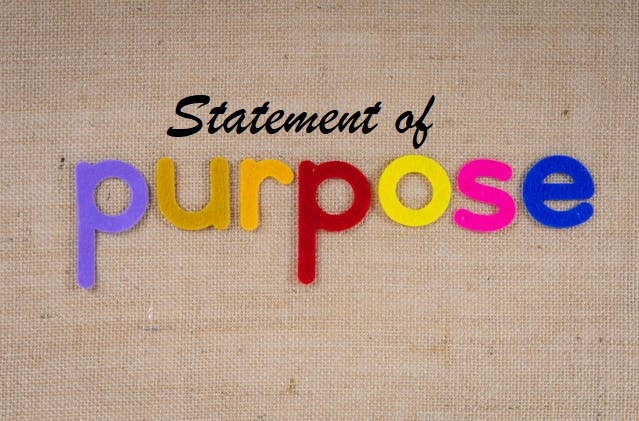HOW TO STUDY IN SOUTH KOREA AS A NIGERIAN STUDENT

North Korea and South Korea divided in the year 1948 into two independent countries. Since then, South Korea has sprung up significantly and has now become an internationally recognized Asian powerhouse. The country is well known in the fields of technology, tourism education, to mention a few of its expertise. Nonetheless in a bid to embrace both tradition and modernity, this ‘Asian Tiger’ has plentiful things to offer international students, and the capital of South Korea is currently Seoul and is ranked among the world’s top 10 student cities
Investments in education and research have been at the fore front of South Korea’s growth as they now reach the world’s 11th largest economy and the fourth largest economy within Asia. Basically, this investment growth in innovation and technology has made the country popularly known as one of the four ‘Asian Tiger’ economies, among other countries like Taiwan, Singapore and Hong Kong.
Why should I study in South Korea?
More than 123,000 international students studied in South Korea in 2017 and the government has set its sights even higher, with an aim of increasing international students by 2023. Universities in South Korea now open new international campuses in order to meet demand and in line with the goal of internationalization the country has.
ADMISSION PROCESS
You should consider that admission procedures vary from school to school. Generally, you can apply directly to your chosen university by post or online. Take note that the South Korean academic year begins in March, although many schools take on new students twice a year – in March and September. Deadlines for March applications are normally set between September and November, while for September entry, deadlines are often between May to June. There are two terms in the South Korean Universities. The summer break is from July to August winter break from December to February.
There are enough courses taught in English Language in South Korea even though learning Korean Language will help you to get easily along with locals. However, there is no language barrier for international students because English Language is widely accepted. In either case, foreign students must prove their proficiency in the language their course will be conducted.
Visa to study in South Korea
As a Nigerian student or any international student, you will need a ‘D-2 visa’ to study in South Korea. This can be accessed from a South Korean embassy or consulate in your home country. Major items you need to provide are your
· International passport,
· A completed visa application form
· A certificate and transcript of your most recent school record,
· Admission letter to a tertiary institution in South Korea and
· A Proof of sufficient finances.
For your D-2 visa you will be required to pay a processing fee of about US$50 (for single entry) or US$80 (for multiple entries).
The visa allows you to stay for up to two years.
International students in the fields of Engineering can apply for the D-2-7 visa. This enables them to stay and work in South Korea after graduation.
You’ll also need to purchase health insurance from the National Health Insurance Service (NHIS), which will entitle you to access treatment at all hospitals in the country and costs around US$20 per month.
Fees and funding
The good news about South Korea is that both home and international student pay the same tuition. This is one of the most important factors that bring more international students to the country. However, the fees you pay depend on the university you choose.
An undergraduate course at a public university costs around US$4,350 per semester (with humanities subjects at the lower end and medicine at the top). At private university in South Korea charges an average fee of South Korean private university, fees US$5,800 for a semester.
Remember that there are two semesters in an academic year when calculating your school fees. South Korean undergraduate programs typically last four years (or six years for subjects like medicine and dentistry).
There are many Scholarships for international students in South Korea. This can from individual universities and may cover 30 to 100 percent of tuition fees. In addition, a number of governmental scholarships are available, which may also cover air fares and living expenses. A popular one from the government is the Global Korea Scholarship (GKS).
Recently, the government liberalizes dormitories, part-time jobs, scholarships, and employment after graduation with a view to making study in South Korea available to students from diverse countries. It is now to access financial aid to cover education costs, and also to stay and seek work in the country after graduation.
University dormitories are usually the cheapest options for accommodation, costing around US$280 to US$1,300 per semester, with the costs varying depending on how many students you’ll be sharing with, and whether catering is included. Private accommodation costs can vary considerably, at anywhere between US$280 and US$700 per month. Most universities offer affordable catering on campus, and if you take advantage of this you’ll likely only spend around US$260 on food a month. In the expensive city of Seul for example one way bus ticket is around US$50.
Once you’ve been enrolled for six months (one semester) you’ll be eligible for applying for part-time work to help supplement your income. You can work up to 20 hours per week during term time and full time during semester breaks, and will need to supply employers with your student visa and a letter of recommendation from your university.
You will experience unique and multifaceted culture everywhere in South Korea. In the cities, the pace of life is fast and competitive, and the hot temperatures can also be relentless. You’ll even have to cope with finding yourself suddenly a year older – age is counted differently here!
There are also lots of relaxation points in South Korea. Such as mountain peaks, dense forests, famous national parks, Buddhist temples and so on.. There are also islands that comes with tranquility of nature and word class hospitality
It is advisable to find ways of relaxing in South Korea as a student because studying can come with stress over there.
Take the chance you have been waiting for. Here is the opportunity for you to study in South Korea
Do you have a scholarship, fellowship, grant, boot camp or any other opportunity you want to apply for today?
CALL: +2349037887718, send email to topstudentsng@gmail.com or Fill this Form now
We have eager team of professionals who are willing to assist you with the application process.
If you have questions or need further help, please do well to contact us TODAY (topstudentsng@gmail.com or +2349037887718













8 Responses
Please I would love to study abroad..
What are my qualifications?
I would love to study in south Korea but no funds if there’s any scholarship please let me know.
I wish too study in Korea. Study in Seoul medicial university
Hy,i want to study in south Korea,but need scholarship and what are the requirements
I will like to study in south Korea, but I need affordable university for international students.
I will love to study in Korea cause that’s my dream,if there is any scholarships process please let me know I will be very grateful
I love to study in Korean please how is it possible for me please give me the details
I will love to study in South Korea because that is my dream but no funds 😔 if there is any scholarships let me know